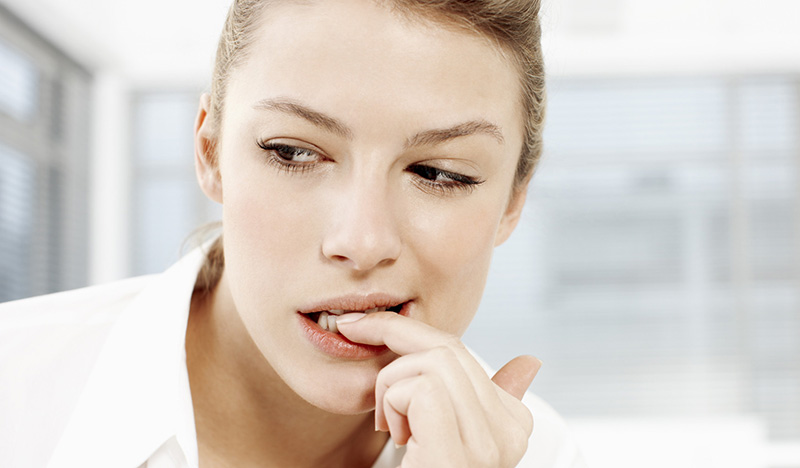Onychophagia – it may be difficult to pronounce but it’s a common habit among children and adults alike. Also known as chronic nail biting in layman’s terms, onychophagia may not cause long-term nail damage but it’s unsanitary, to say the least. Beyond being unsanitary, nonetheless, it also comes with health risks not just to your nails but to your mind and body as well.
But don’t despair if you’re one of millions worldwide with a habit of biting your nails, often regardless of the situation or occasion. You have hope of overcoming it with a few simple yet effective steps although the desired results will likely take time to be enjoyed.
It Isn’t Without Risks
Nails aren’t just the visible part where manicures and pedicures are performed on. Instead, these extend into the nail bed beneath the U-shaped cuticles. For this reason, chronic nail biting will unlikely interfere with normal nail growth so it won’t cause long-term damage either; the nail bed should remain intact, however.
There’s also the fact that chronic nail biting isn’t such a weird habit. About half of all children and teens have a nail biting habit, usually when they’re nervous, hungry or bored, but most of them grow out of it. Even for those who still bite their nails in adulthood, there’s always hope of overcoming it – or at the very least, managing its frequency, intensity and duration.
Again, nail biting isn’t without its risks!
- It can result in odd-looking nails. This usually happens when the tissue around the nails are damaged resulting in the nails growing in an abnormal manner.
- It can increase your risk of infections. Keep in mind that your hands are hotbeds for bacteria, viruses and germs, which can cause a wide range of infections, while your nails are great places for these pathogens to thrive. Each time you bite your nails, you’re increasing your chances of getting sick, such as from the common cold or diarrhea.
- It can damage your teeth. When you bite your nails, you can crack, chip and even break your teeth over time, not to mention increase your risk of jaw issues.
Besides, biting your nails can betray your mental and emotional issues. You may bite your nails because you feel insecure about a situation, such as prior to a job interview, and it isn’t usually such a good way to establish a good impression.
It Can Be Resolved, Fortunately
Of course, you can bust your chronic nail biting habit! You can adopt these steps and see small changes over time.
You should set realistic expectations, obviously, especially when you have been at it since childhood. You may also want to consider professional counselling for your mental and emotional issues, if necessary, since your nail biting habit is likely only a symptom.
- Cut your nails as short as possible but not too short as too cause nail infections. If your teeth don’t have enough nail to grab, then you will not feel satisfied from biting your nails. You will then find other ways to occupy yourself.
- Apply a bitter-tasting, clear-colored nail polish so you will be less likely to bite your nails. You can ask your nail technician at Regal Nails, if it’s available. Many nail polish have a bad taste anyway so even when a bitter-tasting polish isn’t available, a nail polish of any color can serve as a deterrent against nail chewing.
- Get weekly manicures. You may find that with the time and money spent on regular manicures, you will want to keep your beautiful fingernails and stop biting them. You may even like the compliments coming your way, especially from people who have noticed your formerly ragged-looking nails.
- Know your triggers and avoid them. You have to observe when, where and why you bite your nails more frequently. Your triggers may be a combination of physical and mental things or just a single trigger. These can include physical triggers, such as hangnails, and mental triggers like stress, anxiety or boredom.
- You have to figure out a way to manage your reactions to stressful situations, if not avoid what you can avoid. You should also develop a personalized plan to stop nail biting during stressful situations. Even the knowledge of what triggers your habit is a great start toward controlling it.
- Find other distractions for your mouth or hands. You can chew gum instead or find a pen to click so that you don’t resort to nail biting. You may even consider wearing gloves so you can’t get at your nails so easily.
You may be unable to go cold turkey depending on the intensity of your habit. You can take small steps or set small goals for yourself, such as not biting the nail on your thumb for a week and then building up to include all the fingernails on your right hand. You will eventually make it until such time that you’re not biting your nails anymore!
